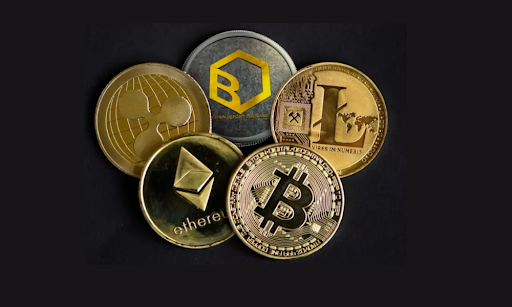Yuga Labs CEO Proposes Ending ApeCoin DAO in Favor of New ApeCo Entity

Yuga Labs CEO Greg Solano has drafted a proposal to dissolve the ApeCoin DAO and replace it with ApeCo, a new entity designed to refocus the ecosystem. According to Decrypt, Solano posted the Ape Improvement Proposal (AIP) on June 5, 2025, calling the current DAO structure unfit for purpose.
The proposal addresses vulnerabilities that have plagued DAOs across the industry. In 2023, we published an interview with an anonymous DAO exploiter who detailed systematic treasury drainage tactics. These groups infiltrate DAOs through networking, secure administrative positions, and create proposals with vague deliverables. The source claimed their network extracted over a million dollars using fake KYC documents, social media manipulation, and exploiting low voter participation rates.
According to crypto expert Daniel Lee who has monitored the ApeCoin DAO closely,
"money grabber proposals definitely played a role in draining funds and creating mistrust. Their vague, unrealistic proposals created needless expenses that didn't align with the community's goals."
The proposal received 130 votes on the ApeCoin forum within hours of posting. Solano claims the DAO has devolved into "governance theater" plagued by vanity proposals and low-impact initiatives. The new ApeCo would concentrate resources on three core pillars: ApeChain, Bored Ape Yacht Club, and Otherside.
From Experiment to Exit
The ApeCoin DAO launched in March 2022 during peak NFT enthusiasm, managing the Ethereum-based governance token independently from Yuga Labs. According to The Block, the organization distributed 62% of APE tokens to its ecosystem fund for community-driven initiatives.
However, critics increasingly targeted the DAO for funding ineffective projects while the token price declined sharply. CoinEdition reports one community member described the DAO as "inefficient, overly politicized, and exploited by self-interested actors" since inception.
Under Solano's plan, ApeCo would inherit all DAO assets after funding staking contracts and settling obligations. The transition would nullify existing AIPs, terminate working groups, and shut down the ApeCoin forum entirely. Yuga Labs co-founder Wylie Aronow expressed support despite needing to search the definition of "cruft" in Solano's proposal.
Market Response and Token Performance
ApeCoin currently trades at approximately $0.70, maintaining a market capitalization around $525 million according to CoinMarketCap. The token ranks 110th by market cap, with 752 million APE in circulation from a maximum supply of 1 billion.
The broader NFT market downturn has impacted ApeCoin significantly. CoinCodex data shows APE dropped 42% over the past year and 87% from all-time highs. Meanwhile, Bored Ape NFT floor prices have plummeted over 90% from their 2022 peak of 128 ETH to approximately 11 ETH.
Recent CoinGecko statistics indicate BAYC maintains 5,591 unique holders across 9,998 total NFTs. Despite price declines, the collection generated 132 ETH in daily trading volume, suggesting continued market activity among core supporters.
Technical Infrastructure and ApeChain Development
The proposed transition coincides with ApeChain's evolution as a Layer 3 blockchain on Arbitrum. According to nftnow, the network launched its mainnet in October 2024 with features including native yield generation and cross-chain functionality through LayerZero integration.
CoinDesk reports ApeCo would first allocate 11.25 million APE ($8.3 million) to staking contracts and reserve 10 million APE for transition costs. The remaining treasury would transfer entirely to the new entity.
ApeChain utilizes Arbitrum's Stylus feature, enabling developers to write smart contracts in Rust and C++ alongside Solidity. The network's "Banana Bill" initiative allocated $70 million for ecosystem development, targeting game developers and Web3 builders through tiered funding programs.
Broader Context and Industry Implications
The proposed DAO dissolution reflects wider challenges in decentralized governance. Research from Emerald Insight indicates DAOs collectively manage over $5 trillion in value as of 2025, yet many struggle with low voter participation and governance inefficiencies.
According to Harvard Law School Forum, token-based voting systems often concentrate power among large holders, undermining decentralization goals. The 2016 hack of "The DAO" demonstrated early vulnerabilities, while recent failures like Wonderland DAO highlight ongoing governance risks.
Cointelegraph notes community responses remain mixed, with some members welcoming increased focus while others criticize the optics of Yuga Labs absorbing the DAO. One dissenting member called the move "bad optics" and rejected claims of DAO failure.
The shift toward centralized control mirrors broader NFT market consolidation. Yuga Labs recently divested non-core IP including CryptoPunks and Meebits while doubling down on the Bored Ape ecosystem. This strategic refocusing aligns with Solano's stated goal of recapturing the company's early momentum and eliminating governance gridlock that hampers rapid development.
Related Reading on DAO Times
Comprehensive DAO Tooling Guide: List of DAO Tools provides an extensive overview of the DAO ecosystem in 2025, covering creation platforms, governance tools, treasury management, and cross-chain solutions.





